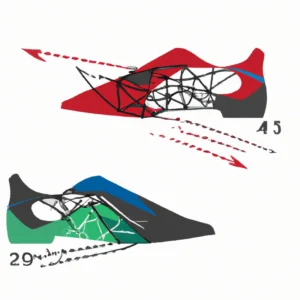Uncover Meal Timing’s Hidden Weight Loss Secrets
The Science of Meal Timing: How Eating Patterns Influence Metabolism and Weight Management
In today’s fast-paced world, convenience often overshadows meal timing. Juggling work, family, and social commitments leads to erratic eating habits. However, recent research shows that meal timing is as important as food choices. This blog explores how meal timing affects metabolism and weight management. Understanding these principles helps you optimize your eating patterns for better health.
Understanding Metabolism
Metabolism converts food into energy in your body. This intricate process involves numerous biochemical reactions in your cells. Your metabolic rate varies throughout the day. Factors like activity level, age, gender, and meal timing influence this variation.
Circadian Rhythms and Metabolism
Your internal clock, known as circadian rhythms, regulates metabolism. Environmental cues, such as light and darkness, influence these rhythms. They govern physiological processes, including hormone release, digestion, and energy expenditure. Research shows that insulin sensitivity is higher in the morning, helping your body process carbohydrates efficiently. In contrast, insulin sensitivity decreases in the evening, complicating blood sugar management after late meals. Eating large meals at night may lead to weight gain as excess calories store as fat.
Meal Frequency Matters
Meal frequency also impacts meal timing. Nutritionists have long debated whether smaller, frequent meals boost metabolism. Some studies suggest this keeps metabolism active and prevents excessive hunger. Other studies indicate total caloric intake may matter more than meal frequency. Finding a pattern that suits your lifestyle is essential.
Tips for Optimal Meal Timing
Effective meal timing strategies significantly impact metabolism and weight management. Here are practical tips to get started:
1. Eat Breakfast Like a King
Start your day with a balanced breakfast. Include protein, healthy fats, and complex carbohydrates. This meal jumpstarts your metabolism and sets a positive tone for the day. Research shows breakfast eaters tend to manage their weight better. A nutritious breakfast also enhances cognitive function and concentration, vital for productivity.
2. Space Out Your Meals
Space meals evenly throughout the day. Eating every 3 to 5 hours helps maintain stable energy levels and prevents extreme hunger. Overly hungry individuals often make impulsive food choices and overeat. Incorporate healthy snacks between meals to keep your metabolism active. Nuts, yogurt, fruits, and vegetables provide essential nutrients while preventing energy dips.
Conclusion
In summary, meal timing significantly influences metabolism and weight management. By optimizing your eating patterns, you can enhance your health and well-being.
Below are related products based on this post:
FAQ
How does meal timing impact metabolism?
Meal timing affects metabolism through the regulation of circadian rhythms, which influence processes like hormone release and energy expenditure. Research indicates that insulin sensitivity is higher in the morning, making it easier for the body to process carbohydrates, while sensitivity decreases in the evening, potentially complicating blood sugar management after late meals.
Is it better to eat smaller, more frequent meals or fewer large meals?
The debate over meal frequency continues among nutritionists. Some studies suggest that smaller, frequent meals keep metabolism active and curb excessive hunger, while others emphasize that total caloric intake is more important than meal frequency. Ultimately, it’s essential to find an eating pattern that fits your lifestyle and preferences.
What are some practical tips for optimal meal timing?
To optimize meal timing, start your day with a balanced breakfast rich in protein, healthy fats, and complex carbohydrates. Additionally, space your meals evenly throughout the day, aiming to eat every 3 to 5 hours. This helps maintain stable energy levels and prevents impulsive food choices. Healthy snacks like nuts, yogurt, fruits, and vegetables can also support your metabolism.















Post Comment